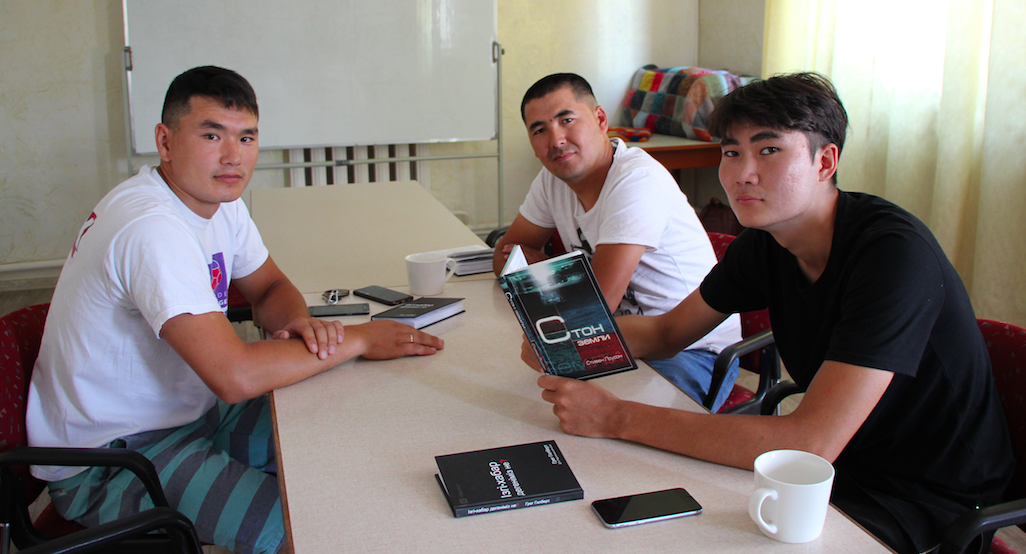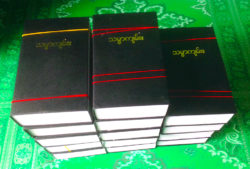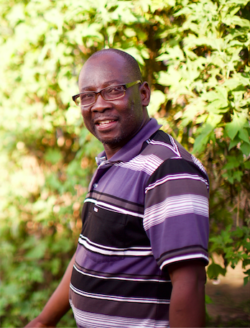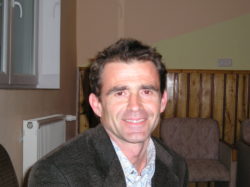
Greetings, brothers. I want to brief you on the current situation concerning Christian literature in the Republic of Kazakhstan (Central Asia). Here I write a little bit about myself. My name is Joseph. I am 49 years old. I have a wife; we have four children. We have lived in the south of Kazakhstan for four years, working on the establishment of a church in a Kazakh-speaking community. Now there are eight members in the church, including us. We came here from the north of the country as missionaries. The reason why we decided to go on a mission to the south of Kazakhstan was that in 2014 God made it clear to me that the south of our country needed the Gospel to be preached in Kazakh. As there are a lot of people here, who don’t understand Russian well or at all. To make the situation clearer for you, I will share the following:
The history of sovereign Kazakhstan began with the collapse of the USSR. Before that time, the language of office work in the republic was Russian. For this reason, the north of the country was overwhelmingly Russian-speaking because of its close location to Russia. In the south, the situation was a little different. The Russian language had a great influence, but because of the high density of the indigenous population (Kazakhs), the Kazakh language did not undergo a big expansion as it was the case in the north. For this reason, there were many schools in the south of the country, even under the Soviet Union, where Kazakh was the language of instruction. I was unaware of the situation in the south. First of all, I was born in Russia and lived in the north, where everyone spoke Russian. Therefore, when serving God in Petropavlovsk, I did not suspect that there were people in Kazakhstan who need the truth of the Gospel to be communicated in their native language. In 2014, God rebuked me and showed me this need.
This situation in the country has also hurt the mission as a whole. Russian-speaking churches are predominantly planted and developed. Converted Kazakhs, who understand Russian more or less, go to such churches. Those who find it difficult to understand the language look for churches where the Gospel is preached in Kazakh. However, there are very few such churches. They are mostly charismatic, Pentecostal, or Baptist who adhere to human-centric teachings. Mainly these are churches with no expository preaching of the Scripture. Moreover, “Kazakh” Christianity is very young. It is only 30 years old. They made a full translation of the Bible into Kazakh only seven years ago. Today there is no clearly defined theological terminology.
Now I would like to talk about Almaty, the capital. Here is a short summary of this city. Almaty is the largest city in Kazakhstan. There are officially 1.6 million people living in the city, and including all unregistered citizens, it is about 2.5 million people. The city is divided into an “upper” and “lower.” Our church is located in the lower part of the city. The area is inhabited by people who speak Kazakh. According to their nationality, the area is mainly inhabited by Kazakhs from other parts of Kazakhstan, as well as from other countries (China, Mongolia, Uzbekistan, Kyrgyzstan). There are no registered churches in the area. As a rule, families have many children, not less than four. Family and collectivism come first. This mentality is different from European individualism. These are mostly low-income families who rent a place to live and who have come to the big city to find a job.
I am learning culture and language. (I am ashamed to admit that, as a Kazakh, I did not know my native language. Four years later, the situation has changed, and I am now preaching in this language. To be more specific, I preach in Kazakh and continue to improve it. God has allowed the Light of the World Church to be there now, and we are all trying to participate in God’s work.
The translation of books makes no headway. There is a big problem with translators. There are very few Christians who know Kazakh and English well. Quite recently, it seemed that there would be some progress in this matter, and one sister agreed to work on this at first, but then she quit even without starting. We planned to translate one of Paul Washer’s books.
I believe that translating good books would have a significant impact now and in the future so that Kazakh Christians can have good spiritual food. Most of the books translated into Kazakh are children’s stories, small brochures, and some books by charismatic writers. As far as I know, only one mission does these translations in Almaty. There is practically no theological literature and no commentaries. I want to offer you to pray for people who could do the translation, and pray that God will provide for the whole process of translation as well. That’s what is on my mind now.
In Christ,
Joseph.
Timothy began working for HeartCry in 2015 and assists with the work in Asia. He is married, has eight children, two sons-in-law, one daughter-in-law, and two grandchildren.
More By Timothy Jotham


